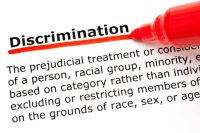EEOC issues bathroom guidelines for transgender employees
by Charlie Plumb Last summer, the Occupational Safety and Health Administration (OSHA) released its “Best Practices: A Guide to Restroom Access for Transgender Workers.” In a nutshell, the OSHA publication stated that transgender employees should have access to the restroom that corresponds to their gender identity rather than to their birth gender. Presumably in response […]








